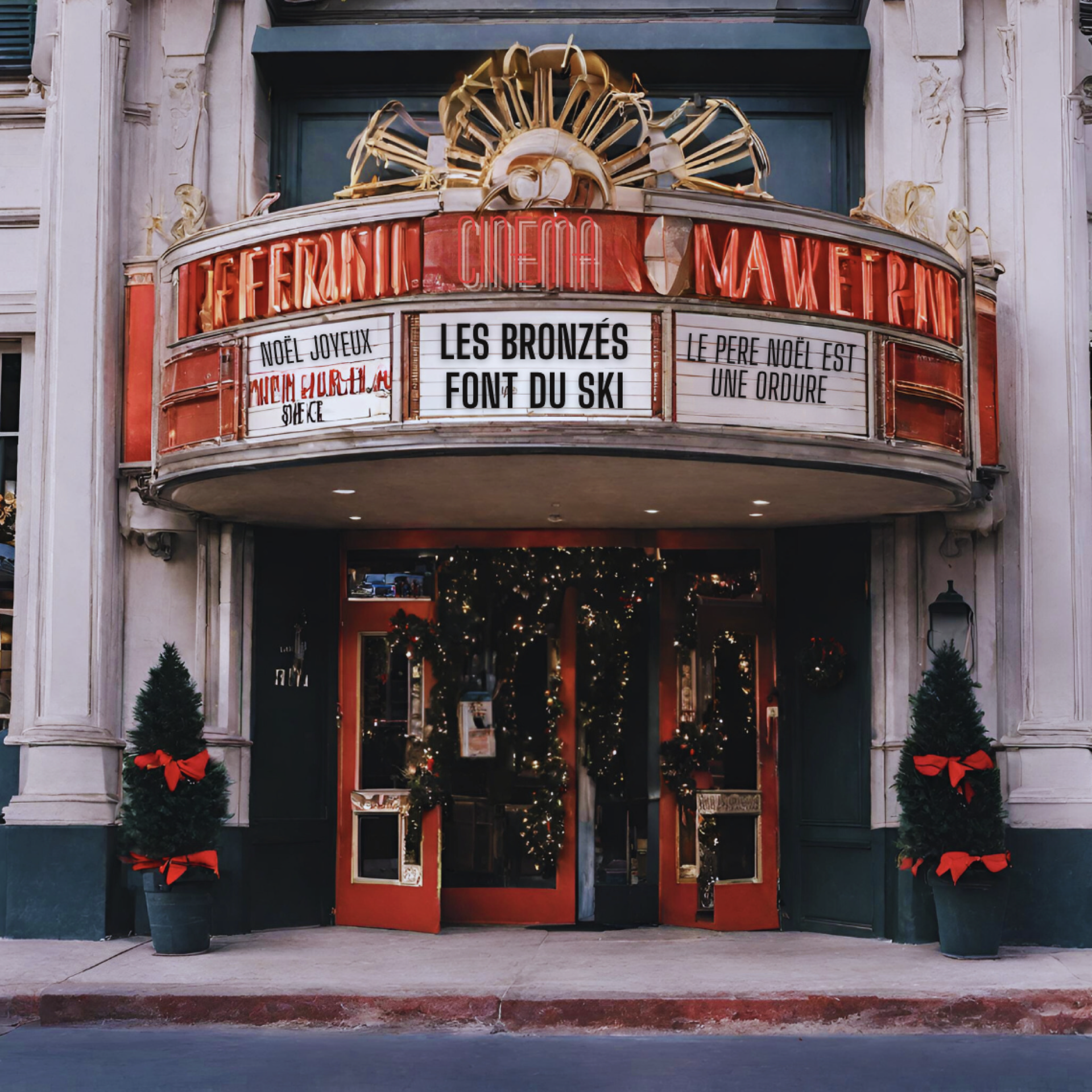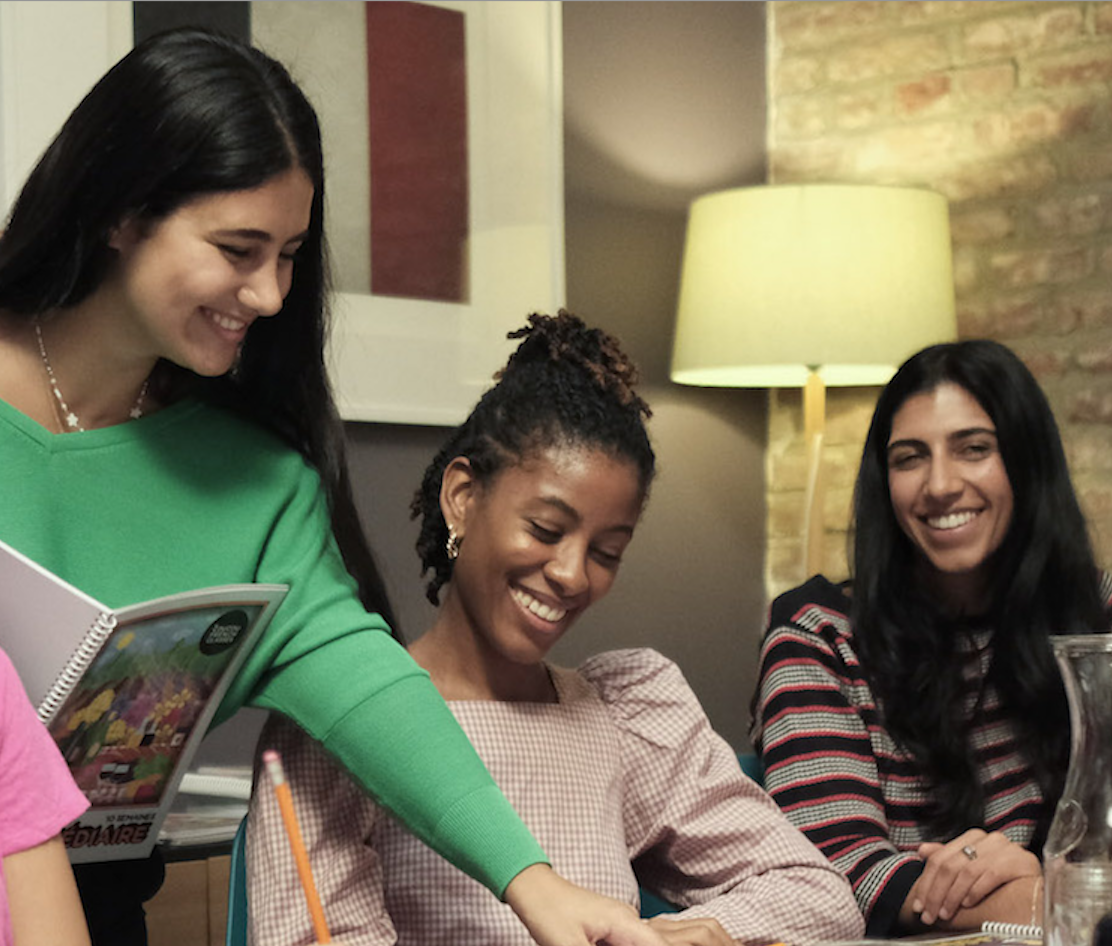If you’re a millennial, you’re probably filled with nostalgia when a Destiny’s Child song comes on the radio. The 2000s might not have been the best decade for American music, but they were nevertheless formative musical years. Maybe you were the kid who worshiped 50 Cent, or the one who copied Avril Lavigne’s eyeliner, or who wrote angsty diary entries while listening to “She Will Be Loved.”
But have you ever wondered what French teens were listening to in the 2000s? Well, some were singing their souls out to bands like Kyo that have… how to put this diplomatically?… not aged too well. Other teens were discovering some amazing music, however, and we’ve put together a list of the 2000s French songs you should discover, too!
By Sophia Millman
Moi Lolita – Alizée (2000)
In 1999, sixteen-year-old Corsican singer Alizée appeared on the French show Graines de star. Mylène Farmer spotted the young singer, invited her to Paris, and wrote “Moi Lolita” for her. Based on Nabokov’s novel, the provocative song tells the story of a girl who attracts older men. In just a few weeks, “Moi… Lolita” sold over 400,000 copies, and Alizée became the darling of a whole generation. Since 2000, she has sold more albums than any other French female artist of her generation.
Like Alizée, many French singers in the 2000s became famous thanks to French TV shows like Nouvelle Star and Star Academy. Jennifer and Julien Doré are two of the best known French artists who emerged from these TV competitions. Listen to Doré’s cover of “Moi Lolita” here.
L’envie d’aimer – Daniel Lévi (2000)
In the early aughts, a series of musicals enraptured the French public. In 1999, Notre-Dame de Paris won the Guinness World Record for having the most successful first year of any musical ever. Four other hit musicals followed it, each opening in 2000: Da Vinci, Les Mille et Une Vies d’Ali Baba, Roméo et Juliette and Les Dix Commandements. “L’envie d’aimer” features in Les Dix Commandements’s final scene. The song was so popular that it won singer-songwriter Daniel Lévi (who plays Moses in the musical) recognition throughout France.
La Belle et le Bad Boy – MC Solaar (2001)
MC Solaar gained international acclaim in the ’90s with the release of his albums Qui Seme Le Vent Recolte Le Tempo, Prose Combat and Paradisiaque. He’s considered France’s first rap superstar thanks to his incredibly popular 1990 hit “Bouge de là.” Solaar studied philosophy, English, Spanish and Russian at university and he’s famous for his complex, multilingual lyrics.
You might remember “La Belle et le Bad Boy” from this Sex And The City scene! The song’s title alludes to Charles Perrault’s famous fairy tale La Belle et la Bête (Beauty and the Beast). You’ll find a lot of other allusions in the song’s lyrics, which you can analyze here. Looking for other hip hop artists like MC Solaar? You should listen to Booba, Rohff, and Sniper!
Art de Rue – la Fonky Family (2001)
Many of France’s most famous rappers come from Marseille. In our post about the top French songs from the ‘90s, we wrote about the Marseillais group IAM. Today, French teenagers adore Marseillais artist Jul, but, in the early ‘00s, la Fonky Family was all the rage. Along with IAM, Supreme NTM, Lunatic, and Time Bomb, la Fonky Family became one of the hexagon’s most iconic hip hop groups in the late ‘90s. Their 1998 album Si Dieu Veut… may be their most famous, but many critics argue that Art de Rue is their masterpiece. Fun fact: La Fonky Family feature on the soundtrack of Luc Besson’s César-winning film Taxi!
Qui De Nous Deux – M (2003)
Beloved in France but little known outside his country, French singer-songwriter Matthieu Chedid has won 13 Victoires de la Musique awards throughout his career. When he was young, Chedid suffered from stage fright and invented his alter ego M to overcome it. M’s distinctive hairstyle, falsetto, and interactive live performances have made him a French legend. The French version of Rolling Stone included M’s Qui de nous deux on their list of the greatest French albums of all time. Its title track (“Which of Us Two” in English) is about Chedid’s two identities. While M has not had much international success, his 2003 song “Belleville Rendez-vous” was nominated for an Oscar.
Louxor J’adore – Philippe Katerine (2005)
You may have already seen Philippe Katerine on screen; he won a César a few years ago for his performance in Le Grand Bain. Katerine began his career as a composer and musician. He first experimented with bossa nova and easy-listening styles, later turning to rock and electronic music. In 2005, he released his most famous album, Robots après tout, that features his signature song, the parodic “Louxor j’adore.”
If you like comical songs like “Louxor j’adore,” you’ll love the fictional creations of French comedian Michaël Youn. Watch his fake group the Bratisla Boys (modeled on bad Eurovision bands) perform here. And check out his other creation, rapper Fatal Bazooka here.
Le dîner – Bénabar (2005)
Bruno Nicolini originally worked in cinema before adopting the stage name Bénabar. Inspired by the French circus clown Barnabé, Nicolini a verlanisé the name to create Bénabar. The artist’s songs might remind you of older French classics. He draws on the works of classic singers like Georges Brassens, often including the accordion and trumpet (which he plays himself!) in his arrangements.
With its humorous lyrics and catchy chorus, “Le dîner” is great song for French learners to study. If you’re looking for other clever lyricists like Bénabar, check out Vincent Delerm. Bénabar and Delerm are both considered part of the “nouvelle scène française” movement, which began in the 1990s. Other nouvelle scène artists include Keren Ann, Jeanne Cherhal, and Pauline Croze.
Jeune Demoiselle – Diam’s (2006)
Melanie Georgiades was born in Cyprus to a French mother and Greek father. Growing up, she listened to Francis Cabrel and also admired Supreme NTM and Public Enemy. In the 1990s, male artists dominated the world of hip hop, but that didn’t deter Georgiades from writing her own rap songs. For her stage name, she chose the shortened version of the word diamond, explaining in an interview that “diamonds are so tough they can only be broken by other diamonds.” Diam’s became incredibly popular during the 2000s along with other female RnB artists Shy’m and Assia. In 2012, her fans were devastated when she announced that she was retiring from the music business.
Love Generation – Bob Sinclar (2006)
Along with David Guetta and Martin Solveig, French producer, DJ, and record label owner Bob Sinclar emerged as one of the most iconic figures of the of the French house scene in the 2000s. His first big hit was “Gym Tonic,” but it was “Love Generation” that solidified his international reputation. Featuring former Wailers singer Gary Pine, the single was chosen as the theme song for the 2006 World Cup and reached No. 1 on the U.S. Dance charts. In 2007, Sinclar won the NRJ Music Award for “Best French DJ of the Year.” And, in 2009, he produced Made In Jamaica, an album that garnered him a Grammy nomination. Check out this Guardian article about the evolution of French electro pop and house music to learn about Sinclar’s predecessors.
Je Veux Te Voir – Yelle (2007)
Singer Julie Budet rose to fame in 2005 after posting a video of herself singing on MySpace. She chose the name YEL (an acronym for “You Enjoy Life”) and later feminized it by adding -le at its end. With two other musicians, Yelle formed an electro pop group that gained international recognition in 2005 with the release of “Je veux te voir.” While major labels pressured the group to sing in English, they refused, and still managed to become a huge success. If you read French viewers’ comments on the video above, you’ll see that many people remember singing “Je veux te voir” as children, only to later realize how provocative the song’s lyrics are. (“I want to see you dans un film pornographique…”) If you want to listen to more French electro pop hits, read this French Buzzfeed article.
D.A.N.C.E. – Justice (2007)
The title of Justice’s 2007 debut album wasn’t a word–just a cross icon. The group’s members, Gaspard Augé and Xavier de Rosnay, met in Paris in 2003, and decided to remix a song for a college radio station contest. Although they didn’t win the contest, the duo was scouted by a record label who released the song under the title “We Are Your Friends.” The song quickly turned into a club and Internet sensation and its music video won at the MTV Europe Music Awards. If you’d like to learn more about the what the group’s been up to in the past ten years, watch this video!
Justice, Air, Phoenix, and Cassius are considered the founders of la French Touch house music phenomenon. Because most French Touch music is written for international audiences, you’ll find English lyrics in the majority of French Touch songs. If you’d like to learn about the history of the French Touch movement, you could watch Mia Hansen-Love’s critically acclaimed film Eden.
Bonus: 1er Gaou – Magic System (2002)
You might have heard the Afropop quartet Magic System perform if you attended Summerstage festival in Central Park in 2019. The Ivory Coast group formed in 1996 and became internationally famous thanks to Bob Sinclar’s remix of “1er Gaou.” Their 2014 hit single “Magic in the Air” became a commercial success and was played in stadiums throughout the FIFA season.
“Gaou” is a slang word that originated in Francophone West African and refers to someone who’s a loser or a fool. 1er (premier) gaou means “first fool” in English. The song’s semi-autobiographical lyrics are about a musician whose ex-girlfriend tries to win him back when he becomes famous. You’ll be able to learn a bit of French-Ivorian patois by studying the lyrics!





